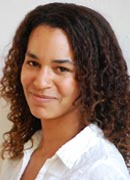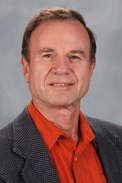PRIMARY RESEARCHERS
Dr. Joseph E. LeDoux
Emotional Brain Institute; Center for Neural Science at NYU; New York University Langone School of Medicine

Joseph LeDoux is the director of EBI at NYU and is also a University Professor, Henry and Lucy Moses Professor of Science, Professor of Neural Science and Psychology, and Professor of Child and Adolescent Psychiatry at the NYU/Langone School of Medicine. His research is focused on the relation between emotion and memory, and his main laboratory is in the Center for Neural Science at NYU. LeDoux's books, The Emotional Brain and Synaptic Self, have been translated into numerous languages and are used to guide researchers and clinicians in their efforts to understand and treat emotions. His work at NYU and the EBI aims to build on his past research using animal models to unlock the secrets of emotions, especially fear and anxiety.
Visit LeDoux Lab
Dr. Liz Phelps
Department of Psychology - Harvard Psychology

Liz Phelps Pershing Square Professor of Human Neuroscience and DIB Committee Co-Chair. The primary inspiration behind Professor Phelps’ research is the observation that emotions color our lives, and even subtle, everyday variations in our emotional experience can alter our thoughts and actions. By uncovering the impact of emotion and affect on cognition, she aims to both enhance our understanding of cognition broadly and provide insights into social processes and psychological disorders. Current research in the lab explores three related questions. First, how is it that we learn about potential threats, and how can we effectively update this learning in a dynamic environment? Second, how do our emotions alter what we remember? Third, how are our decisions and actions changed by our affective states and emotions? To address these questions, Professor Phelps uses a human neuroscience approach which combines a range of scientific methodologies, including: behavioral studies, physiological measurements, hormone assays, pharmacology, brain-lesion studies, functional magnetic resonance imaging, and computational modeling.
Visit Phelps Lab
Dr. Cristina M. Alberini
Emotional Brain Institute; Center for Neural Science of NYU

Cristina M. Alberini is a Professor of Neural Science at Center for Neural Science of NYU. Her work focuses on understanding the molecular mechanisms that underlie long-term memory formation, with particular emphasis on the processes of consolidation and reconsolidation. She has been awarded the Hirschl/Weil-Caulier Career Scientist Award and the NARSAD Independent Investigator Award. She is a member of the Council and current president of the Molecular and Cellular Cognition Society (MCCS). In 2009, she was awarded with the Golgi Medal, given by the Golgi Foundation in Brescia, Italy, for contributions to the field of neuroscience.
Visit Alberini Lab
Dr. Catherine Hartley
Emotional Brain Institute; Department of Psychology at NYU

Catherine Hartley is an Assistant Professor of Psychology at NYU. Research in her laboratory focuses on characterizing the diverse learning and decision-making processes that support adaptive motivated behavior. Specifically, she focuses on understanding the cognitive, computational, and neural processes engaged to predict positive and negative environmental events and evaluate potential responses, as well as how these processes change over the course of development and vary across individuals. She uses an array of methodological techniques to pursue these questions including neuroimaging, psychophysiology, computational modeling, and genetics, in conjunction with experimental paradigms that draw upon both animal learning and economic decision theories. She received her B.S. in Symbolic Systems from Stanford University and her PhD in Psychology from New York University.
Visit Sears Lab
AFFILILIATED RESEARCHERS
Dr. Emily Balcetis
Psychology of New York University

Emily Balcetis is an Assistant Professor of Psychology at NYU. She is interested in the conscious and nonconscious ways people fundamentally orient to the world. In particular, she focuses on how the motivations, emotions, needs, and goals people hold impact the basic ways people perceive, interpret, and ultimately react to information around them. She advocates for an interactive cognitive system where psychological states constrain the basic manner in which we perceive and react to our worlds. Her work, then, explores motivational biases in visual and social perception and the consequential effects for behavior and navigation of the social world. In doing so, her research represents an intersection among social psychology, judgment and decision-making, social cognition, and perception.
Visit Balcetis Lab
Dr. Yaacov Trope
Psychology of New York University

Yaacov Trope is a Professor of Psychology at NYU. His research interests focus on the cognitive and motivational mechanisms underlying people's judgments and decisions about themselves and others. His research on cognitive mechanisms attempts to distinguish between controllable and uncontrollable processes that produce overconfident judgments, and his research on motivational mechanisms investigates how wishes and desires influence the process of testing hypotheses about self and others. These questions are investigated in several content areas, including stereotyping, personality trait inferences, and self-evaluation.
Visit Trope Lab
Mark Wing-Davey
Tisch School of the Arts at NYU

Mark Wing-Davey first came to prominence in the United States in 1992 with his celebrated production of Caryl Churchill’s Mad Forest at New York Theatre Workshop. Since then he has worked extensively internationally and in New York for Labyrinth Theater Company, Lincoln Center, Manhattan Theatre Club, NYTW, Playwrights Horizons, and The Public Theater/ New York Shakespeare Festival. He directed Sarah Ruhl’s Passion Play at the Goodman Theatre, Yale Repertory Theatre, and for Epic Theater Ensemble in a site-specific production at the Irondale Center in Brooklyn. He is an Arts Professor at New York University’s Tisch School of the Arts and chair of its Graduate Acting Program.